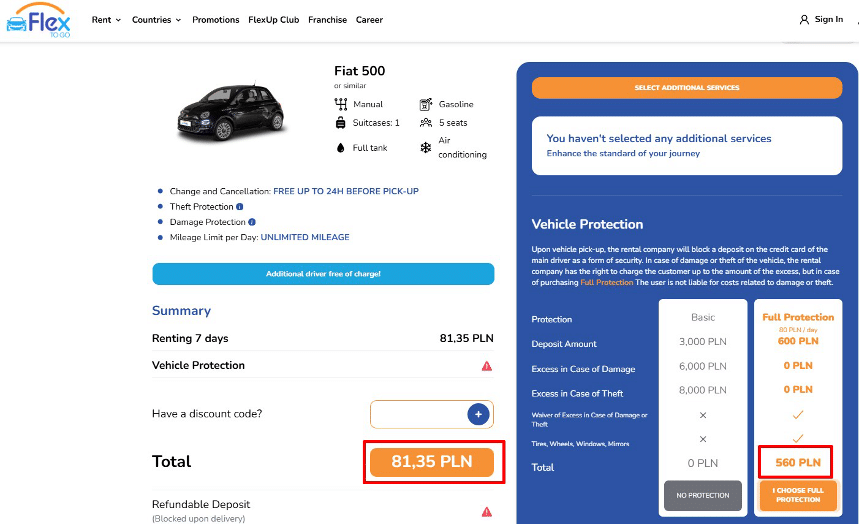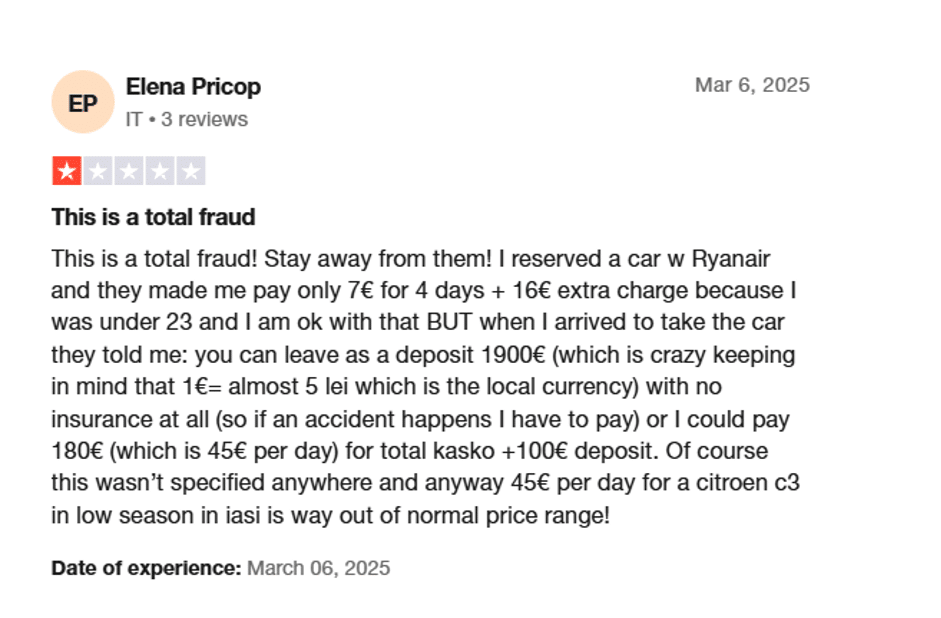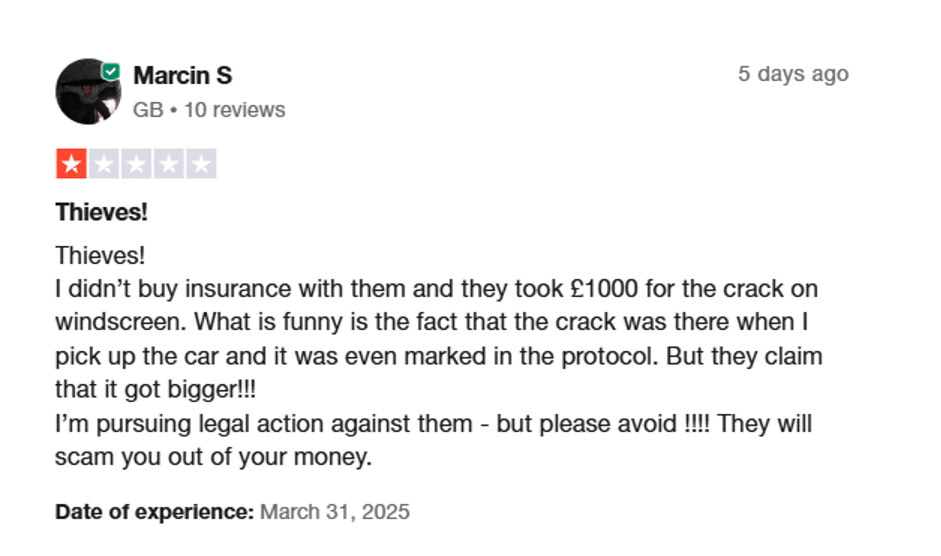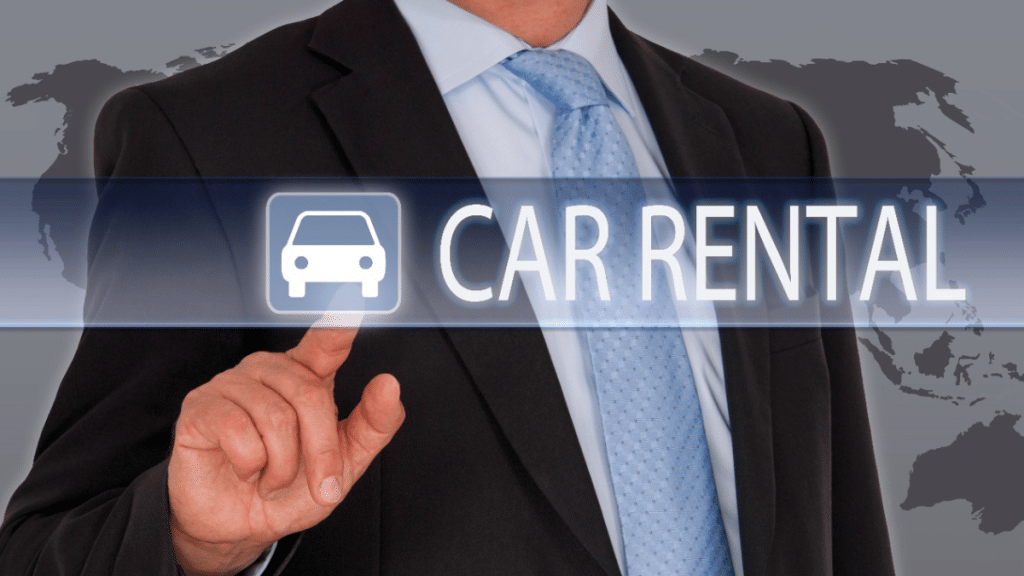Introduction
Renting a car at a seemingly unbeatable rate can be enticing. Yet, a €5/day car rental deal often has hidden costs that can inflate the total expense significantly. Understanding these pitfalls can spare you from a potentially costly experience. Here’s a deep dive into common misconceptions and hidden charges that come with budget car rentals.
Common Pitfalls in Budget Car Rentals
The Myth of the “1-Euro” Rental
The allure of a “1-Euro” rental is hard to resist, especially for savvy travelers looking to save. However, this enticing offer often comes with limitations that might not be immediately apparent. For example, while the rental fee is minimal, additional costs such as fuel and insurance can quickly add up. Often, these rentals are one-way transfers necessitating a rigid pickup and drop-off schedule at specific locations, leaving little room for itinerary flexibility.

Flex To Go – Rental cost for 7 days is EUR 20 and zero excess coverage cost EUR 140
Understanding these constraints can help you use the offer as a strategic part of your travel plan rather than a potential financial burden. Ensure you also anticipate and confirm the details of any included costs—such as coverage for fuel—to truly benefit from the advertised price.

Unexpected Fees and Surcharges
Even when you think you’ve secured a great car rental deal, unexpected fees and surcharges can significantly increase your final bill. These typically include airport surcharges due to concession recovery fees, local taxes, and customer facility charges, which collectively can add 10% to 30% to your rental cost. Besides these, per-mileage fees, road taxes, and out-of-hours drop-off fees can catch you off guard.
“I returned the car with a full tank, but was still charged a €50 ‘refueling fee.’ Apparently, I didn’t keep the receipt, which they needed as proof. Total scam.”
— Sofia L., Sydney
Moreover, administration charges for using your credit card insurance, which may involve processing fees, can further bloat your bill. Like we mentioned earlier, hidden excesses can be concealed within complex terms and conditions. The key is to read the fine print thoroughly beforehand and ensure transparent communication with the rental company to bypass unwanted surprises.
💸 Common Hidden Fees: At-a-Glance
| Fee Type | Typical Amount | Notes |
| Additional Driver Fee | €5 – €15 per day | Often applies per driver, per day |
| Young Driver Surcharge | €10 – €25 per day | Usually applies to drivers under 25 |
| Out-of-Hours Pickup/Return | €30 – €75 | Charged if pickup/drop-off is outside standard working hours |
| Refueling Fee | €30 – €50+ | Charged if tank isn’t full and you lack a receipt |
| Cleaning Fee | €20 – €100 | If the car is returned in what they consider “excessively dirty” |
| Minor Damage Fee | €150 – €500+ | Often charged without proof; photo documentation is crucial |
| Border Crossing Fee | €10 – €50 per day | For taking the car into another country |
The Insurance Trap: Paying More or Taking a Risk
How budget rental companies push expensive insurance packages
Budget car rental companies often employ aggressive sales tactics to encourage renters to purchase expensive insurance packages. Upon arrival at the counter, customers might face pressure to purchase Super Collision Damage Waiver (SCDW), which can significantly inflate your rental cost. Operators often emphasize the potential out-of-pocket expenses you’re liable for without these coverages, making you feel vulnerable to financial risk.
“I showed up with my own third-party coverage, but the agent told me it ‘wouldn’t be accepted’ unless I paid an extra €25 per day for their premium plan. I felt pressured and ended up paying over €150 more than I planned.”
— Rachel K., London
Furthermore, some rental firms may imply that declining their insurance could delay the rental process or result in not being fully covered, despite many travelers already having existing coverage through credit cards or personal auto insurance policies. It’s essential to know your coverage beforehand, confidently decline unnecessary extras, and scrutinize the terms to avoid these high-pressure tactics.
What happens if you decline their insurance—high excess fees and financial liability
Declining the rental company’s insurance can initially seem like a cost-saving move, but it often leaves you exposed to substantial excess fees and financial liability. In many cases, drivers are required to provide a pre-authorization on their credit card, which can be a significant amount, often ranging from €1,500 to €5,000 depending on the car type. This deposit is held as collateral against potential damages or loss during the rental period.
Should an accident occur, you’ll be responsible for the initial costs up to the excess amount, with reimbursement claims proving lengthy and complicated. Such financial exposure makes it wise to consider purchasing excess insurance or exploring alternative insurance options for peace of mind.
The CarInsuRent alternative: affordable coverage with better protection
CarInsuRent offers a practical alternative for those looking to sidestep hefty insurance costs imposed by rental companies while still maintaining solid protection. Unlike rental agency offerings, CarInsuRent provides comprehensive coverage at a fraction of the price. With policies that can be tailored to rental duration and location needs, it covers you against excess charges in situations involving accidental damages or vehicle theft.
Notably, CarInsuRent insulates you from the exorbitant excess fees commonly applied by rental companies. Moreover, with an easy claim process that’s expedited online, it reduces both financial stress and procedural hassles should an incident occur. For travelers seeking peace of mind and cost efficiency, CarInsuRent is an appealing alternative to traditional rental insurance options.
Unfair Damage Claims: A Common Scheme
How some rental companies systematically charge customers for pre-existing damage
Many rental companies have been found to systematically charge customers for pre-existing damage that was neither detected nor documented beforehand. This practice often involves charging customers for minor scratches, dents, or interior scuffs that were present before the rental period. Customers are sometimes unaware of these damages initially due to inadequate lighting in pickup areas or being rushed through the check-out process.
In some instances, customers return their vehicle only to receive a bill weeks later for damages they didn’t cause, making it harder to dispute without solid evidence. This tactic leverages the uncertainty and complexity of damage assessments, capitalizing on the lack of detailed pre-rental inspection by renters. To protect yourself, conducting a meticulous examination of the vehicle prior to renting it—and documenting everything with photos and videos—is crucial in disputing unfair claims successfully.

Client was charged EUR 1,600 for the repair of a tiny scratch on the bumper
Real-life cases of travelers being forced to pay for scratches, dents, and scuffs they didn’t cause.
Real-life stories of travelers dealing with unfair damage claims abound, painting a troubling picture of some rental companies’ practices. For instance, one traveler returned from a business trip only to receive a bill for €1,000 for a windshield crack that was allegedly on the vehicle. They reported that the crack was already there when they took the car; however, the rental car company claimed that it became bigger.

In another scenario, a family on vacation received a surprise charge for a dent they claimed was likely caused by another driver while parked. Despite being with a supposedly reputable international rental company, they faced an uphill battle to prove their innocence. Such cases emphasize the importance of thorough documentation and can serve as a warning to others about the potential pitfalls of renting without proper precautions.
The importance of taking detailed photos and videos at pickup and drop-off.
Taking detailed photos and videos at both the pickup and drop-off stages is a crucial step to protect against unfair damage claims. This documentation acts as your primary evidence if disputes arise, showing the car’s original condition when you received it and when you returned it. Capture wide shots to encompass the entire vehicle, and zoom in on any visible imperfections, ensuring timestamps are enabled on your device.
Additionally, verify the vehicle’s interior condition, paying attention to upholstery, dashboard, and electronics, which are often overlooked. When dropping the car off, repeat the process to confirm no changes occurred during your rental period. Validate these images with a rental company staff member, if possible, to avoid discrepancies later. By adopting this thorough approach, you establish a firm foundation to counteract potentially unjust claims by the rental company.
Additional Hidden Fees That Add Up
Extra charges for fuel, mileage limits, and late returns
Hidden charges related to fuel policies, mileage limits, and return times can quickly escalate the cost of an inexpensive car rental. Many rental agreements include a “full-to-empty” fuel policy, where you’re charged for a full tank upfront but receive no refund for unused fuel. Opting for a “full-to-full” policy—where you return the vehicle with a full tank—can prevent paying premium rates imposed by the company.
Mileage limitations also pose a risk, as exceeding the allowed distance incurs charges that range from 10 to 50 cents per extra mile. Ensure you are aware of any mileage caps to budget accordingly. Additionally, returning your car late may lead to being charged for an extra rental day, while early returns might result in unexpected fees due to disruptions in fleet management. Understanding these conditions upfront allows you to plan your rental accordingly and avoid surprise costs.
Tackling Hidden Accessory Charges
Hidden charges for accessories such as GPS navigation systems, child seats, and additional driver fees can add unexpected costs to your car rental invoice. Most rental agencies capitalize on convenience by offering these extras at a premium, which might be significantly higher than sourcing them independently. For example, renting a GPS unit from the company can cost anywhere from €10 to €15 per day, while using a free mobile app can perform the same function at zero cost.
Similarly, child seats are often rented at rates that quickly accumulate over longer trips, even though many airlines offer free transport of personal child seating equipment. As for extra driver charges, enrolling spouses or travel companions under your reservation might incur daily fees, impacting your budget. To tackle these charges, it’s prudent to inquire about costs upfront, explore alternatives, and, when feasible, bring your own gear or rely on existing digital tools to cut down on unnecessary expenses.
Pros and Cons of Renting at the Airport
Renting a car at the airport offers convenience, but it also comes with a set of trade-offs that are important to consider. Pros include easy access right after landing and the ability to quickly get on your way without the need for additional transportation. Most major rental companies are located at the airport, giving you a wide range of vehicle options without leaving the terminal.
However, the cons can outweigh these benefits for budget-conscious travelers. Renting directly from the airport often incurs extra fees like concession recovery charges, customer facility fees, and local taxes, dramatically increasing your overall rental cost. These can add 10% to 30% to your rental bill. Additionally, airport rentals may have a more limited inventory, leading to higher prices during peak travel times. For those willing to venture a bit farther off-site, rental agencies often offer lower rates with fewer surcharges, making it a valuable option to consider if saving money is the priority.
How to Avoid Costly Rental Car Pitfalls
Researching rental companies and checking reviews
Conducting thorough research into rental companies and scrutinizing customer reviews is a smart first step in avoiding costly car rental pitfalls. Start by comparing different rental agencies, focusing on those with transparent pricing and straightforward terms. Websites like Trustpilot, Yelp, and Google Reviews offer insights into customer satisfaction levels, shedding light on common issues such as hidden fees or poor customer service.

Additionally, look for feedback specifically related to the experiences of past renters, which can reveal patterns or repeat concerns that may influence your decision. Pay attention to how companies resolve complaints, as their approach to customer service can significantly affect your overall rental experience. By taking the time to conduct this comprehensive research, including reading both positive and negative reviews, you’ll be better equipped to select a reputable rental company, thereby ensuring a smoother and more cost-effective rental process.
Using independent insurance providers like CarInsuRent for full protection
Opting for independent insurance providers such as CarInsuRent can offer complete protection while being more cost-effective than rental company policies. These providers typically cover excess fees and offer comprehensive coverage against theft and damages, often at a fraction of the cost levied by rental agencies. This means you can avoid high charges by the rental company while enjoying robust protection.
With CarInsuRent, policies are not only cheaper but also more flexible, allowing you to tailor coverage based on your travel needs. The claims process is streamlined and user-friendly, reducing the stress associated with potential incidents. By using such independent insurance, you effectively minimize financial exposure and gain peace of mind during your travels. This approach is particularly beneficial for frequent travelers or those planning extended road trips who require dependable, economical coverage.
Conclusion
Navigating the world of budget car rentals requires vigilance and informed decision-making to avoid unexpectedly high costs. While attractive rates like the €5/day deal or the “1-Euro” rental might initially seem like unbeatable bargains, hidden charges for insurance, fuel, mileage, and damages can quickly exceed your budget. Awareness of these pitfalls—along with proactively researching rental companies and their policies—equips you to make smarter rental choices. Utilizing independent insurance options like CarInsuRent, carefully reviewing rental agreements, and documenting vehicle conditions with detailed photos and videos can further safeguard against unnecessary expenses and disputes. By adopting these strategies, you ensure your car rental experience is economical, transparent, and free from unwelcome surprises, enabling you to focus on enjoying your journey without financial stress.
